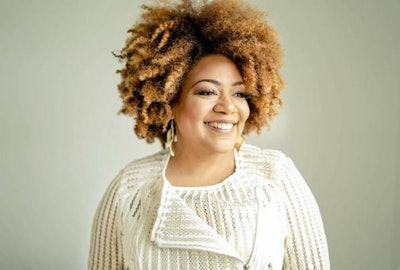Paul Quinn College President Michael J. Sorrell has been a leading advocate in higher education for students returning to in-person learning only when it is safe to do so. So while it was no surprise when he announced that our school’s classes would continue remotely because of COVID concerns, our students, as well as those at other Historically Black Colleges and Universities (HBCUs), suddenly faced obstacles that students learning remotely at many other schools may not have encountered.
Because 75% of Paul Quinn students are first-generation (even higher than the 60% first-gen rate at HBCUs nationally), one such hurdle came from the students’ families, who often expected the students to resume the responsibilities they had before leaving for college. That included taking jobs to help with the family’s financial needs (about 80% of our students qualify for Pell grants) or caring for an elderly grandparent or a younger sibling. Not surprisingly, these intergenerational responsibilities can be a huge distraction from remaining focused on schoolwork.
 Dr. Stacia’ Alexander
Dr. Stacia’ AlexanderThat led to a second challenge – students’ mental health – and specifically, anxiety and loneliness. As it is, more than 70% of Paul Quinn students report experiencing some type of trauma. Now this group of students, who already feel pressured as first-gen students to succeed, have likely returned to situations that made them the most uncomfortable before coming to college. Without the daily interactions with dorm and classroom friends who provide energy and support to each other, and without a regular schedule, their patterns for studying, eating, sleeping and exercise were all thrown off.
Thirdly, the intersection of COVID, racial unrest, food insecurity and economic recession/concerns seem to bear a disproportionate weight on students of color, and Black students in particular. A recent report by the non-profit The Steve Fund concluded, “Disparate health impacts of the pandemic and today’s mounting social, economic, and racial inequities require strategic action to protect the mental health and emotional well-being of young people of color.”
As it is, many Black youths do not seek out counseling because they view it as a sign of weakness. During a typical school year, all incoming Paul Quinn students are encouraged to meet with a counselor to have their needs assessed. Our wellness program is widely promoted across campus through educational outreach and exercise activities. We want students to recognize the importance of preventive care so that if they do experience a crisis, there is no stigma or fear in seeking help.
But that was before COVID. As coordinator of Paul Quinn’s mental health and wellness clinic, I, along with several of my colleagues, suddenly had to figure out ways to help remotely when the pandemic struck.
One way Paul Quinn has adapted is to be in touch regularly with our students – normally once a week or more. The school has held virtual movie nights, debates, town hall meetings, Instagram Live discussions, comedy shows and a student government election process. Each week the entire student body watches videos on holistic living, relaxation training and other tips on how to navigate these difficult times. While we can all feel somewhat Zoom-fatigued, these gatherings help us feel connected and less alone as a community.
We also regularly remind them that help is always available, even when our counseling center is closed. In January, we partnered with TimelyMD, a telehealth provider whose board-certified healthcare providers and mental health counselors are available and specifically trained to help college students 24/7 and on a moment’s notice. That decision, made prior to the pandemic, has made the transition to supporting students remotely a bit easier despite the challenging circumstances.
In addition, we are reaching out directly to those students who are missing assignment deadlines or showing other signs of academic or financial distress.
And we do regularly send out mental health tips, such as avoid isolation by staying in touch with those who care about you; engage in some form of daily physical activity; journal to help organize your thoughts; turn off social media for extended periods each day; and avoid unhealthy patterns, such as playing video games all night or staying glued to social media, among other things.
The challenges for our students are real, especially our first-year students who have not previously experienced the type of support we do provide and therefore may be reticent to seek them out. These are challenging times indeed.
We look forward to the day when our students can safely return to campus and life returns to some level of normalcy. But until then, we will continue to reach out directly and often to make sure our students are well, safe and on track, and that they know help is only a phone call away.
Dr. Stacia’ Alexander is coordinator of Paul Quinn College’s mental health and wellness clinic.















